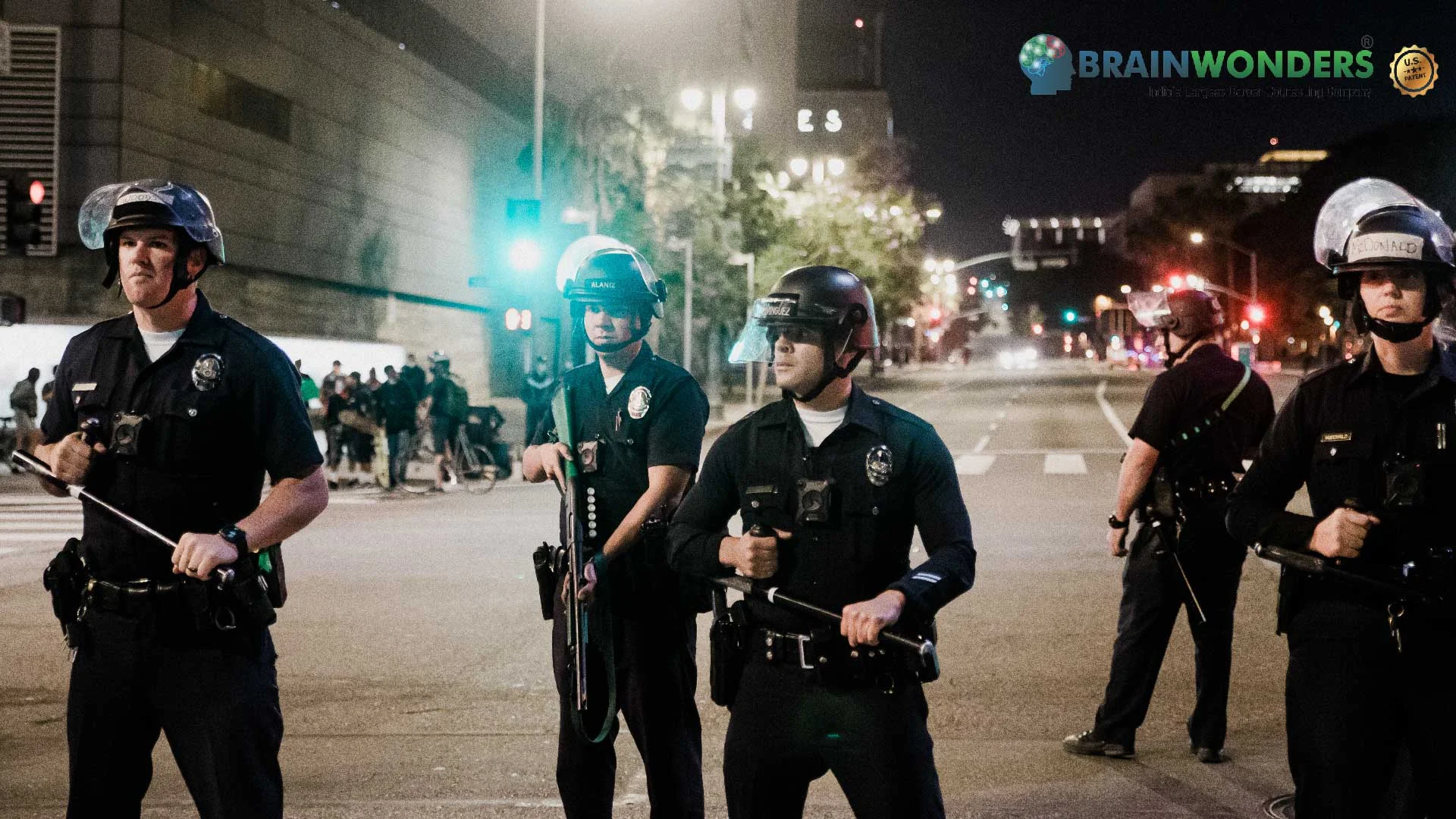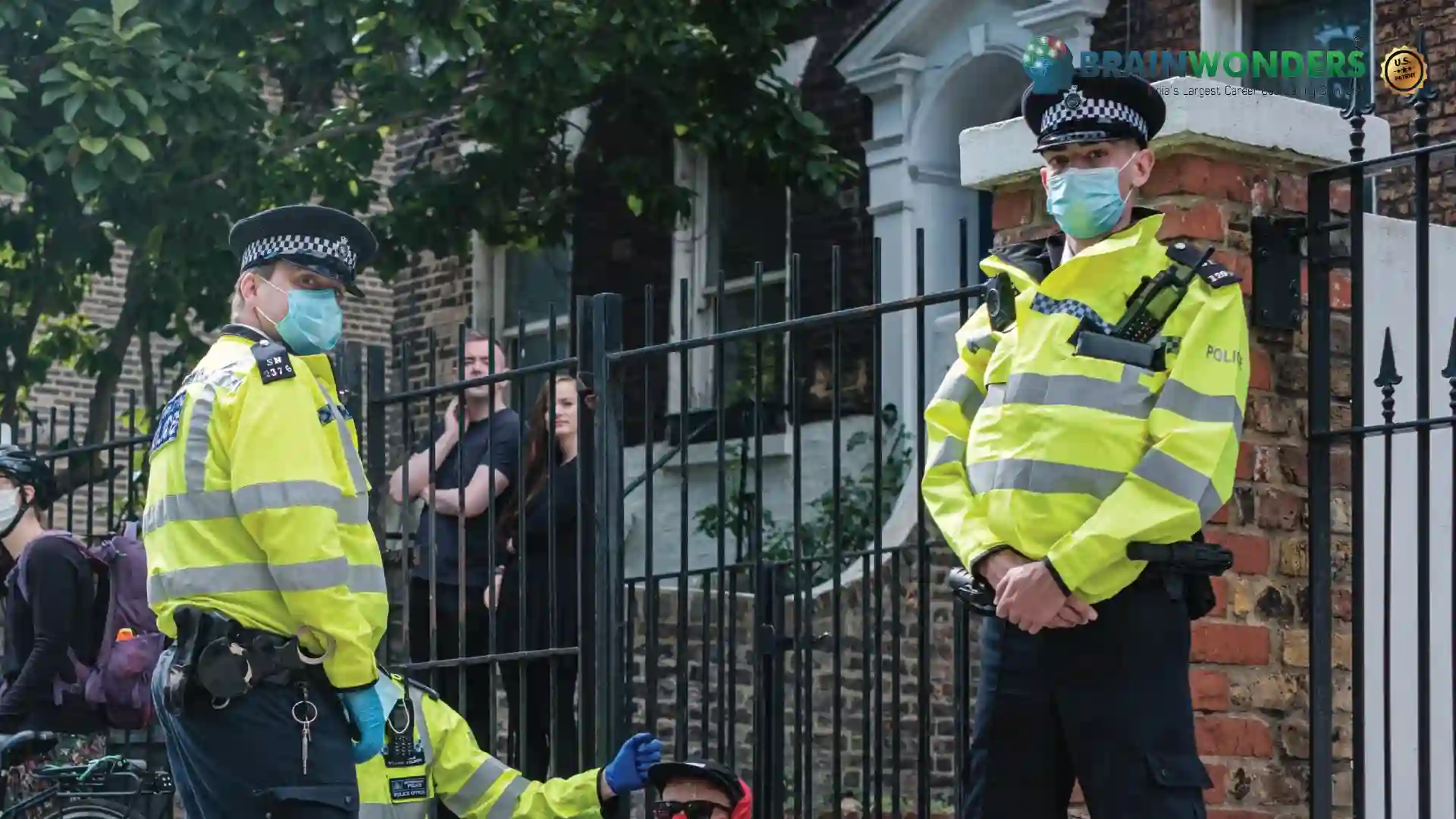How to become a Transit and Railroad Police
Overview, Courses, Exam, Colleges, Pathways, Salary

Overview
Who is Transit and Railroad Police ?
Transit and railroad police officers are law enforcement professionals who specialize in maintaining safety and security within transit systems and railroad networks. Their primary responsibility is to protect passengers, employees, and property associated with public transportation and railroad infrastructure.
Transit and railroad police officers enforce laws, regulations, and policies specific to transit systems and railroads. They patrol stations, platforms, trains, and other transit areas to deter criminal activity, respond to emergencies, and ensure public order. They may also conduct investigations related to thefts, assaults, vandalism, or other crimes occurring within their jurisdiction.
These officers collaborate with transit agencies, railroad companies, and local law enforcement agencies to coordinate security measures and maintain a safe environment for passengers and employees. They may also assist commuters, address fare evasion issues, and educate the public on safety protocols.
Transit and railroad police officers undergo specialized training to handle the unique challenges of working in transportation environments.
Typical day at work
What does Transit and Railroad Police do?
- Transit and railroad police officers are responsible for various tasks to ensure safety and security within transit systems and railroad networks.
- Their duties include patrolling stations, platforms, and trains to deter criminal activity, respond to emergencies, and maintain public order.
- They enforce laws and regulations specific to transit and rail environments, conduct investigations related to crimes or incidents within their jurisdiction, and collaborate with transit agencies, railroad companies, and local law enforcement agencies.
- Transit and railroad police officers also assist commuters, address fare evasion issues, and educate the public on safety measures.
- Their specialized training equips them to handle the unique challenges of working in transportation settings, and their presence helps create a secure environment for passengers, employees, and property associated with public transportation and railroads.
Abilities and Aptitude needed
What are the skills, abilities & aptitude needed to become Transit and Railroad Police?
To become a transit and railroad police officer, certain skills, abilities, and aptitudes are required:
- Law Enforcement Skills: Knowledge of law enforcement procedures, tactics, and laws relevant to transit and railroad environments.
- Crisis Response: Ability to handle emergencies calmly and effectively, ensuring public safety and managing high-stress incidents.
- Communication Skills: Strong verbal and written communication skills to interact with diverse populations, provide assistance, and gather information.
- Observational Skills: Keen observation skills to detect suspicious activities, identify potential threats, and maintain situational awareness.
- Problem-Solving Abilities: Quick thinking and sound judgment to assess situations, make critical decisions, and take appropriate action.
- Physical Fitness: Physical fitness and agility to handle physically demanding situations and perform essential duties effectively.
- Collaboration: Ability to collaborate with transit agencies, railroad companies, and other law enforcement agencies to coordinate security measures and respond to incidents.
- Cultural Sensitivity: Sensitivity and respect for diverse cultures and backgrounds encountered in transit and railroad environments.
- Ethics and Integrity: Strong ethical standards, honesty, and integrity to uphold the law and maintain public trust.
- Adaptability: Adaptability to changing environments, schedules, and demands inherent in transit and railroad policing.
Pathways
How to become an Transit and Railroad Police?
Entrance Exam
Entrance Exam for Transit and Railroad Police ?
Courses
Which course I can pursue?
Best Colleges
Which are the best colleges to attend to become an Transit and Railroad Police?
Industries
Which Industries are open for Transit and Railroad Police?
Transit and railroad police officers find employment primarily within the transportation industry. They work for transit agencies that operate metro systems, buses, light rail, and other forms of public transportation. Additionally, they are employed by railroad companies and authorities responsible for managing rail networks and freight transportation. Transit and railroad police officers often collaborate with local law enforcement agencies to enhance security and safety within transit and railroad environments. They may also work alongside security firms contracted by transportation companies to provide additional support and expertise. Their role is crucial in maintaining public order, preventing criminal activity, and ensuring the well-being of passengers, employees, and property within transit systems and railroads.
internship
Are there internships available for Transit and Railroad Police?
Internship opportunities targeted for transit and railroad police may be limited, as these positions typically require specialized training and certification. However, some transit agencies and law enforcement agencies may offer internship programs that provide exposure to law enforcement within transit systems or railroads. These internships could involve working closely with transit or railroad police officers, gaining insights into their roles and responsibilities, and participating in related activities such as community outreach or security initiatives. It is advisable to check with local transit agencies, law enforcement departments, or railroad companies to inquire about internship opportunities within their organizations. Additionally, broader law enforcement or criminal justice internships could provide valuable experience and insights applicable to transit and railroad policing.
Career outlook
What does the future look like for Transit and Railroad Police?
The future for transit and railroad police officers appears positive as the demand for public safety within transportation systems continues to be essential. With increasing urbanisation and the need for efficient and secure transportation networks, the role of transit and railroad police is expected to remain significant.
The evolving transportation landscape, integrating new technologies and expanding transit networks will require well-trained law enforcement professionals. Transit and railroad police will be crucial in maintaining public order, preventing crime, responding to emergencies, and ensuring the safety of passengers, employees, and infrastructure.
Additionally, emphasising enhanced security measures and emergency preparedness within transportation systems will contribute to the need for skilled transit and railroad police officers. Collaborating with other law enforcement agencies, transit authorities, and security firms will be increasingly important.





.webp)

